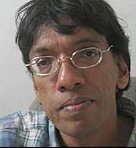The Interdependence Of Security And VotesThe Interdependence Of Security And Votes
 The Issue of the Vote at the UN Human Rights Council in Geneva became the Main Issue during political elections in the Western and Southern provinces the provincial Council. The Government's decision to conduct those elections in the same Week As the UNHRC resolution was voted upon being was likely to have been prompted by political considerations. It reflected the government's continuing belief in the domestic electoral process, and obtaining a renewed mandate, as providing it with the legitimacy to rule regardless of other considerations. The threat to the unity of the country and to its sovereignty was brought to the fore by government campaigners in the run up to the provincial council elections to the Western and Southern provincial councils
While the government has shown resilience in its ability to utilize nationalism to win the support of the general population in relation to electoral politics and defeat the opposition, it has been meeting with increasing resistance and disenchantment on the ground. There are localized pockets of political activity where there is increasingly strong opposition to the government. While the election reflected in the main a continuing trust in the stability and security represented by the current ruling party, it also gave more than a hint of the disenchantment due to governance and insecurity issues faced by the ethnic and religious minorities. While the margin of victory achieved by the government at the provincial council elections was impressive there is unease in government ranks.
Although the government obtained a 55 percent level of popular support which is undoubtedly high it is nevertheless 10 percentage points less than the 65 percent that the government notched up at these same provincial elections five years ago. This suggests that the government's reliance on nationalism to win elections is getting stale. This was seen in the lack of popular responsiveness to the government's setback in the international realm. The elections were purposefully timed with the vote in Geneva of the UN Human Rights Council in mind. The government appears to have believed that the resolution would generate a wave of nationalist sentiment amongst the voters. But it did not. This would be a cause for anxiety. Read More
The Issue of the Vote at the UN Human Rights Council in Geneva became the Main Issue during political elections in the Western and Southern provinces the provincial Council. The Government's decision to conduct those elections in the same Week As the UNHRC resolution was voted upon being was likely to have been prompted by political considerations. It reflected the government's continuing belief in the domestic electoral process, and obtaining a renewed mandate, as providing it with the legitimacy to rule regardless of other considerations. The threat to the unity of the country and to its sovereignty was brought to the fore by government campaigners in the run up to the provincial council elections to the Western and Southern provincial councils
While the government has shown resilience in its ability to utilize nationalism to win the support of the general population in relation to electoral politics and defeat the opposition, it has been meeting with increasing resistance and disenchantment on the ground. There are localized pockets of political activity where there is increasingly strong opposition to the government. While the election reflected in the main a continuing trust in the stability and security represented by the current ruling party, it also gave more than a hint of the disenchantment due to governance and insecurity issues faced by the ethnic and religious minorities. While the margin of victory achieved by the government at the provincial council elections was impressive there is unease in government ranks.
Although the government obtained a 55 percent level of popular support which is undoubtedly high it is nevertheless 10 percentage points less than the 65 percent that the government notched up at these same provincial elections five years ago. This suggests that the government's reliance on nationalism to win elections is getting stale. This was seen in the lack of popular responsiveness to the government's setback in the international realm. The elections were purposefully timed with the vote in Geneva of the UN Human Rights Council in mind. The government appears to have believed that the resolution would generate a wave of nationalist sentiment amongst the voters. But it did not. This would be a cause for anxiety. Read More
 The Issue of the Vote at the UN Human Rights Council in Geneva became the Main Issue during political elections in the Western and Southern provinces the provincial Council. The Government's decision to conduct those elections in the same Week As the UNHRC resolution was voted upon being was likely to have been prompted by political considerations. It reflected the government's continuing belief in the domestic electoral process, and obtaining a renewed mandate, as providing it with the legitimacy to rule regardless of other considerations. The threat to the unity of the country and to its sovereignty was brought to the fore by government campaigners in the run up to the provincial council elections to the Western and Southern provincial councils
The Issue of the Vote at the UN Human Rights Council in Geneva became the Main Issue during political elections in the Western and Southern provinces the provincial Council. The Government's decision to conduct those elections in the same Week As the UNHRC resolution was voted upon being was likely to have been prompted by political considerations. It reflected the government's continuing belief in the domestic electoral process, and obtaining a renewed mandate, as providing it with the legitimacy to rule regardless of other considerations. The threat to the unity of the country and to its sovereignty was brought to the fore by government campaigners in the run up to the provincial council elections to the Western and Southern provincial councils 
